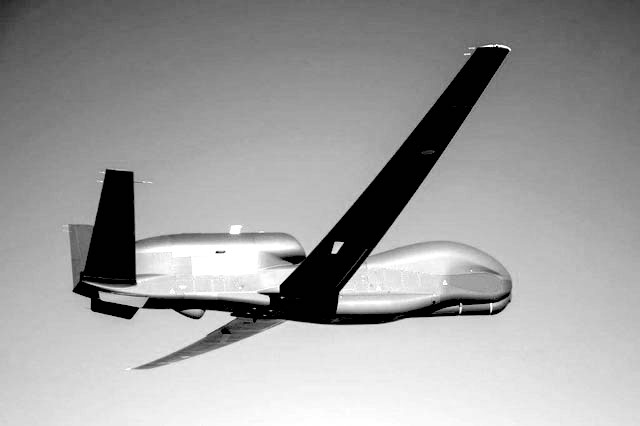

テクネー・技術
technē


日本大百科全書(ニッポニカ)「テクネー」の解説から
「ギリシア語のテクネーは近代語のtechnique(英語)、Technik(ドイツ語) の語源にあたる語であるが、本来的、逐語的にはart(英語)、Kunst(ドイツ語)に相当する語である。すなわち、テクネーは、その語根teks-が「製作・建築」を表していることからもわかるように、芸術を も含んで広く技術一般を意味するのである。たとえば、絵画、彫刻などの諸芸術をはじめ、医学、建築法、弁論術、料理法などおよそ人為による所産に関してテ クネーの語が適用され、その意味では自然と対立することにもなっている。このように古代ギリシアでは、人間の制作活動一般に伴う知識や能力が尊重され、それら全体がテクネーの名 で統括されていたのである。
哲学者プラトンの『ゴ ルギアス』によれば、テクネーは単なる経験から区別されて、対象の本来的性質についての理論的知識(ロゴスlógos)をもつ働きを意味していた。 さらに彼は『ソピステス』において、この人間の理性的活動一般としてのテクネーを、 諸技術と芸術とに分類し、後者をとくに「模倣技術」とよんだ。これは、あ る実在的な事物を模倣すること(ミメーシスmímēsis)によって非実在的な模像を制作する活動であり、この模倣の概念は、芸術の本質規定としてアリストテレスに受け継がれている。
ところでプラトンにおいてテクネーは、彼の思想において重要な役割を果たしているが、それが神的狂気(マニアmanía)による詩作(ポイエーシスpoíēsis)と対比される場 合は、その人為の側面が強調されていた。そのようなテクネーを、プラトンよりも積極的にとらえたのはアリストテレスである。彼の『ニコマコス倫理学』 (6巻4章)によれば、テクネーは、制作者を始源としてある存在をつくりだす方法を考究する働きを意味しており、「真なるロゴスを伴う制作の能力」と定義 されている。すなわち、テクネーとは、単なる知的能力ではなく、学問 的認識と経験的判断との間に位置して普遍と個別にかかわる真理認識の能 力なのである。これについては、ハイデッガーが、テクネーを、制作活動を通じて一定の真を暴き出すこと(エントベルゲン Entbergen)と解釈したこ とでよく知られている。また、アリストテレスは『自然学』その他において、実用的な技術については、動物の巣作りに対応する建築等のように自然の合目的性 に倣う技術と、医学や政治のように自然を補充する技術とを区別したり、また芸術としての技術については、「模倣技術」の目的を表現としてのミメーシスによ る快の生起と規定するなど、テクネーに関する厳密な考察を行っている。このようにテクネーは技術と芸術の両義をあわせもっているが、その原義は、ラテン語 のarsにおいてもほぼ変わらず、中世に継承されていくことになる。[樋笠勝士]」
| Let this, then, be
taken as our account of scientific knowledge. |
そこで、この学的知について論じよう |
| In the variable are included
both things made and things done; making and acting are different (for
their nature we treat even the discussions outside our school as
reliable); so that the reasoned state of capacity to act is different
from the reasoned state of capacity to make. Hence too they are not
included one in the other; for neither is acting making nor is making
acting. Now since architecture is an art and is essentially a reasoned
state of capacity to make, and there is neither any art that is not
such a state nor any such state that is not an art, art is identical
with a state of capacity to make, involving a true course of reasoning.
All art is concerned with coming into being, i.e. with contriving and
considering how something may come into being which is capable of
either being or not being, and whose origin is in the maker and not in
the thing made; for art is concerned neither with things that are, or
come into being, by necessity, nor with things that do so in accordance
with nature (since these have their origin in themselves). Making and
acting being different, art must be a matter of making, not of acting.
And in a sense chance and art are concerned with the same objects; as
Agathon says, 'art loves chance and chance loves art'. Art, then, as
has been is a state concerned with making, involving a true course of
reasoning, and lack of art on the contrary is a state concerned with
making, involving a false course of reasoning; both are concerned with
the variable. |
その変数には、作られたものと行われたものの両方が含まれる;作ること
と行動することは異なる(その性質上、我々は学外の議論さえも信頼できるものとして扱う);したがって、行動する能力の理性的状態は、作る能力の理性的状
態とは異なっている。したがって、これらもまた、一方が他方に含まれることはない;なぜなら、演じることは作ることでもなく、作ることは演じることでもな
いからである。建築は芸術であり、本質的に作る能力の理性的な状態であり、そのよう
な状態でない芸術も、芸術でないそのような状態もないので、芸術は真の理性を伴う、作る能力の状態と同一である。すべての芸術は、存在すること、すなわ
ち、存在することも存在しないことも可能であり、その起源が作るものにあるのではなく、作るものにあるものが、どのように存在するようになるかについて、
工夫し考察することに関係している。作ることと行動することは異なるから、芸術は作ることであって、行動することではないはずである。そして、ある意味で
偶然と芸術は同じ対象に関係している。アガトンが言うように、「芸術は偶然を愛し、偶然は芸術を愛する」のである。そして、芸術は、これまでのように、真
の推論を伴う、作ることに関係する状態であり、逆に芸術の欠如は、偽の推論を伴う、作ることに関係する状態であり、両方とも変数に関係している。 |
| http://classics.mit.edu/Aristotle/nicomachaen.6.vi.html |
|
| Technology
is the application of knowledge to reach practical goals in a
specifiable and reproducible way.[1] The word technology may also mean
the product of such an endeavor.[2]: 117 [3] The use of technology is
widely prevalent in medicine, science, industry, communication,
transportation, and daily life. Technologies include physical objects
like utensils or machines and intangible tools such as software. Many technological advancements have led to societal changes. The earliest known technology is the stone tool, used in the prehistoric era,[4] followed by fire use, which contributed to the growth of the human brain and the development of language in the Ice Age.[5] The invention of the wheel in the Bronze Age enabled wider travel and the creation of more complex machines.[6] Recent technological developments, including the printing press, the telephone, and the Internet have lowered communication barriers and ushered in the knowledge economy. While technology contributes to economic development and human prosperity, it can also have negative impacts like pollution or resource depletion, or cause social harms like technological unemployment caused by automation.[7] As a result, philosophical and political debates have arisen over the role and use of technology, the ethics of technology, and the mitigation of technology's potential downsides.[8] Historical and contemporary movements like neo-Luddism and anarcho-primitivism criticize technology's pervasiveness,[9] while adherents to transhumanism and techno-progressivism actively support technological change, viewing it as emancipatory.[10] Many negative impacts of technology can be mitigated through technological innovations like renewable energy in transportation and industry,[11] genetically modified crops to address soil depletion,[12] and space exploration to mitigate global catastrophic risks.[13] |
技術(テクノロジー)とは、特定可能かつ再現可能な方法で実用的な目標に到達するための
知識の応用である[1] 。技術という言葉は、そのような努力の産物を意味することもある[2]。 117 [3]
技術の利用は、医学、科学、産業、通信、交通、日常生活などに広く浸透している。テクノロジーには、道具や機械のような物理的なものと、ソフトウェアのよ
うな無形の道具がある。 多くの技術的進歩が社会の変化をもたらしてきた。最も古い技術は先史時代に使われた石器であり[4]、次いで氷河期には人間の脳の発達と言語の発達に貢献 した火の使用が始まった[5]。青銅器時代には車輪が発明され、より広い範囲の移動とより複雑な機械の創造が可能になった[6]。 技術は経済発展と人類の繁栄に貢献する一方で、公害や資源の枯渇といった負の影響や、自動化による技術的失業のような社会的害悪をもたらすこともある [7]。その結果、技術の役割と使用、技術の倫理、技術の潜在的欠点の緩和について哲学的・政治的議論が起こっている。 [ネオ・ラディズムやアナーコ・プリミティヴィズムのような歴史的・現代的な運動は技術の普及を批判し[9]、トランスヒューマニズムやテクノ進歩主義の 支持者は技術の変化を解放的と見て積極的に支持している[10]。技術の負の影響の多くは、輸送や産業における再生可能エネルギー、土壌枯渇に取り組むた めの遺伝子組み換え作物、地球規模の破滅のリスクを軽減するための宇宙開発などの技術革新を通じて軽減することができる[11][12][13]。 |
 |
A steam turbine with the case
opened, an example of energy technology エネルギー技術の一例である蒸気タービンのケースを開けたところ |
| Etymology Technology is a term dating back to the early 17th century that meant 'systematic treatment' (from Greek Τεχνολογία, from τέχνη 'art, craft' and -λογία, 'study, knowledge').[14][15] It is predated in use by the Ancient Greek τέχνη, used to mean 'knowledge of how to make things', which encompassed activities like architecture.[16] Starting in the 19th century, continental Europeans started using the terms Technik (German) or technique (French) to refer to a 'way of doing', which included all technical arts, such as dancing, navigation, or printing, whether or not they required tools or instruments.[2]: 114–115 At the time, Technologie (German and French) referred either to the academic discipline studying the "methods of arts and crafts", or to the political discipline "intended to legislate on the functions of the arts and crafts."[2]: 117 Since the distinction between Technik and Technologie is absent in English, both were translated as technology. The term was previously uncommon in English and mostly referred to the academic discipline, as in the Massachusetts Institute of Technology.[17] In the 20th century, as a result of scientific progress and the Second Industrial Revolution, technology stopped being considered a distinct academic discipline and took on its current-day meaning: the systemic use of knowledge to practical ends.[2]: 119 |
語源 技術とは、17世紀初頭に遡る用語で、「体系的な処理」を意味する(ギリシャ語のΤεχνολογία、τέχνη「芸術、工芸」と-λογία「研究、 知識」から)[14][15]。古代ギリシャ語で、建築などの活動を包含する「ものを作る方法の知識」を意味して使用されていたτέχνηの方が先行して いる[16]。 19世紀以降、ヨーロッパ大陸では、ダンス、航海術、印刷など、道具や楽器を必要とするかどうかに関わらず、すべての技術的な芸術を含む「やり方」を指す ために、テクニーク(ドイツ語)またはテクニック(フランス語)という用語を使用するようになった[2]。 114-115 当時、Technologie(独語・仏語)は「美術工芸の方法」を研究する学問分野、あるいは「美術工芸の機能に関する立法を目的とする」政治的な学問 分野を指していた[2]。 117 英語ではTechnikとTechnologieの区別がないため、どちらもテクノロジーと訳された。以前は英語では一般的でなく、マサチューセッツ工科 大学のように学問分野を指すことがほとんどであった[17]。 20世紀に入り、科学の進歩と第二次産業革命の結果、テクノロジーは明確な学問分野と見なされなくなり、現在のような「知識を実用的な目的のために体系的 に使用すること」の意味を持つようになった[2]。 119 |
| Impact Many new technologies have had deep societal ramifications. Technologies have contributed to human welfare through increased prosperity, improved comfort and quality of life, and medical progress, but they can also disrupt existing social hierarchies, cause pollution, and harm individuals or groups. Recent years have brought about a rise in social media's cultural prominence, with potential repercussions on democracy, and economic and social life. Early on, the internet was seen as a "liberation technology" that would democratize knowledge, improve access to education, and promote democracy. Modern research has turned to investigate the internet's downsides, including disinformation, polarization, hate speech, and propaganda.[67] Since the 1970s, technology's impact on the environment has been criticized, leading to a surge in investment in solar, wind, and other forms of clean energy. Since the invention of the wheel, technologies have helped increase humans' economic output. Past automation has both substituted and complemented labor; machines replaced humans at some lower-paying jobs (for example in agriculture), but this was compensated by the creation of new, higher-paying jobs.[68] Studies have found that computers did not create significant net technological unemployment. [69] Due to artificial intelligence being far more capable than computers, and still being in its infancy, it is not known whether it will follow the same trend; the question has been debated at length among economists and policymakers. A 2017 survey found no clear consensus among economists on whether AI would increase long-term unemployment.[70] |
インパクト 多くの新しいテクノロジーは、社会的に深い影響を及ぼしてきました。テクノロジーは、繁栄の拡大、快適性や生活の質の向上、医療の進歩などを通じて人類の 福祉に貢献してきたが、既存の社会階層を破壊し、汚染を引き起こし、個人または集団に害を与えることもできる。 近年、ソーシャルメディアが文化的に重要視されるようになり、民主主義や経済・社会生活に影響を与える可能性が出てきました。インターネットは当初、知識 を民主化し、教育へのアクセスを向上させ、民主主義を促進する「解放のテクノロジー」と見なされていた。現代の研究は、偽情報、偏向、ヘイトスピーチ、プ ロパガンダを含むインターネットのマイナス面を調査することに目を向けている[67]。 1970年代以降、テクノロジーが環境に与える影響が批判され、太陽光、風力、その他のクリーンエネルギーへの投資が急増するようになった。 車輪の発明以来、テクノロジーは人間の経済的生産高を増加させるのに役立ってきた。過去の自動化は労働を代替し補完した。機械は低賃金の仕事(例えば農 業)において人間に取って代わったが、これは新しい高賃金の仕事の創造によって補われた[68]。[69]人工知能はコンピュータよりもはるかに能力が高 く、まだ初期段階にあるため、同じ傾向をたどるかは不明であり、この問題は経済学者と政策立案者の間で長く議論されてきた。2017年の調査では、AIが 長期的な失業率を増加させるかどうかに関して、経済学者の間で明確なコンセンサスが得られていないことが分かった[70]。 |
| Philosophy Philosophy of technology is a branch of philosophy that studies the "practice of designing and creating artifacts", and the "nature of the things so created."[71] It emerged as a discipline over the past two centuries, and has grown "considerably" since the 1970s.[8] The humanities philosophy of technology is concerned with the "meaning of technology for, and its impact on, society and culture".[71] Initially, technology was seen as an extension of the human organism that replicated or amplified bodily and mental faculties.[72] Marx framed it as a tool used by capitalists to oppress the proletariat, but believe technology would be a fundamentally liberating force once it was "freed from societal deformations". Second-wave philosophers like Ortega later shifted their focus from economics and politics to "daily life and living in a techno-material culture," arguing that technology could oppress "even the members of the bourgeoisie who were its ostensible masters and possessors." Third-stage philosophers like Don Ihde and Albert Borgmann represent a turn toward de-generalization and empiricism, and considered how humans can learn to live with technology.[8] Early scholarship on technology was split between two arguments: technological determinism, and social construction. Technological determinism is the idea that technologies cause unavoidable social changes.[73]: 95 It usually encompasses a related argument, technological autonomy, which asserts that technological progress follows a natural progression and cannot be prevented.[74] Social constructivists argue that technologies follow no natural progression, and are shaped by cultural values, laws, politics, and economic incentives. Modern scholarship has shifted towards an analysis of sociotechnical systems, "assemblages of things, people, practices, and meanings", looking at the value judgments that shape technology.[73] Cultural critic Neil Postman distinguished tool-using societies from technological societies and from what he called "technopolies," societies that are dominated by an ideology of technological and scientific progress to the detriment of other cultural practices, values, and world views.[75] Herbert Marcuse and John Zerzan suggest that technological society will inevitably deprive us of our freedom and psychological health.[76] |
哲学 技術哲学は、「人工物を設計し、作成する実践」と「そのように作成されたものの性質」を研究する哲学の一分野である[71]。 人文科学の技術哲学は「社会と文化に対する技術の意味とその影響」に関するものである[8]。 当初、テクノロジーは身体的・精神的能力を複製または増幅する人間の生体の延長として見られていた[72]。マルクスはそれを資本家がプロレタリアートを 抑圧するために用いる道具として枠付けしたが、いったんテクノロジーが「社会的変形から解放」されれば根本的な解放力になると信じている。オルテガのよう な第二波の哲学者は、その後、経済や政治から「日常生活やテクノマテリアル文化の中での生活」へと焦点を移し、テクノロジーが「その表向きの主人であり所 有者であるブルジョアジーのメンバーでさえ」抑圧できると主張している。ドン・イーデやアルベルト・ボーグマンといった第三段階の哲学者たちは、脱一般化 と経験主義への転回を代表し、人間がいかにしてテクノロジーとともに生きることを学べるかを考察していた[8]。 技術に関する初期の研究は、技術的決定論と社会的構築論という2つの議論に分かれていた。技術決定論は技術が不可避な社会変化を引き起こすという考え方である[73]: 95それは通常、関連する議論である技術的自律性を包含しており、技術的進歩は自然な進行に従っており防ぐことはできないと主張している[74] 社会構成主義者は技術が自然な進行に従わず、文化的価値、法律、政治、経済インセンティブに よって形成されていると主張している[74]。現代の研究は、技術を形成する価値判断に注目し、「物、人、実践、意味の集合体」である社会 技術システムの分析へとシフトしている[73]。 文化批評家ニール・ポストマンは道具を使う社会を技術社会から、そして彼が「テクノポリス」と呼ぶ、他の文化的実践、価値、世界観を損なう技術的・科学的 進歩のイデオロギーによって支配されている社会から区別した[75]。 ハーバート・マルクーゼとジョン・ゼルザンは技術社会が私たちの自由と心理的健康を必然的に奪うと提言している[76]。 |
| Ethics The ethics of technology is an interdisciplinary subfield of ethics that analyzes technology's ethical implications and explores ways to mitigate the potential negative impacts of new technologies. There is a broad range of ethical issues revolving around technology, from specific areas of focus affecting professionals working with technology to broader social, ethical, and legal issues concerning the role of technology in society and everyday life.[77] Prominent debates have surrounded genetically modified organisms, the use of robotic soldiers, algorithmic bias, and the issue of aligning AI behavior with human values[78] Technology ethics encompasses several key fields. Bioethics looks at ethical issues surrounding biotechnologies and modern medicine, including cloning, human genetic engineering, and stem cell research. Computer ethics focuses on issues related to computing, including artificial intelligence and robotics. Cyberethics explores internet-related issues like intellectual property rights, privacy, and censorship. Nanoethics examines issues surrounding the alteration of matter at the atomic and molecular level in various disciplines including computer science, engineering, and biology. And engineering ethics deals with the professional standards of engineers, including software engineers and their moral responsibilities to the public.[79] Other fields of ethics have had to contend with technology-related issues, including military ethics, media ethics, and educational ethics. |
倫理 技術の倫理は、技術の倫理的意味を分析し、新しい技術の潜在的な負の影響を軽減する方法を探る倫理学の学際的な下位分野である[77]。技術を扱う専門家 に影響を与える特定の分野から、社会と日常生活における技術の役割に関するより幅広い社会的、倫理的、法的問題まで、技術にまつわる倫理的問題の広い範囲 が存在する[77]。 著名な議論は、遺伝子組み換え生物、ロボット兵士の使用、アルゴリズムの偏り、及びAI動作を人間の価値観と整合させるという問題を取り巻いている [78]。 技術倫理はいくつかの重要な分野を包含している。生命倫理は、クローン、ヒト遺伝子工学、幹細胞研究など、バイオテクノロジーと現代医療を取り巻く倫理的 な問題に着目している。コンピュータ倫理学は、人工知能やロボット工学など、コンピューティングに関連する問題に焦点を当てている。サイバーエシックス は、知的財産権、プライバシー、検閲など、インターネットに関連する問題を探求している。ナノ倫理学では、コンピュータ科学、工学、生物学などさまざまな 分野において、原子・分子レベルでの物質の変化をめぐる問題を調査している。他の倫理分野では、軍事倫理、メディア倫理、教育倫理など、技術に関連した問 題に対処しなければならないこともある。 |
| https://en.wikipedia.org/wiki/Technology |
|
★ハイデガーによる技術の定義(ハイデッガー 1965:18)
1)技術は目的のための手段である
2)技術は人間の行為である
Links
リンク
文献
その他の情報


☆
 ☆
☆